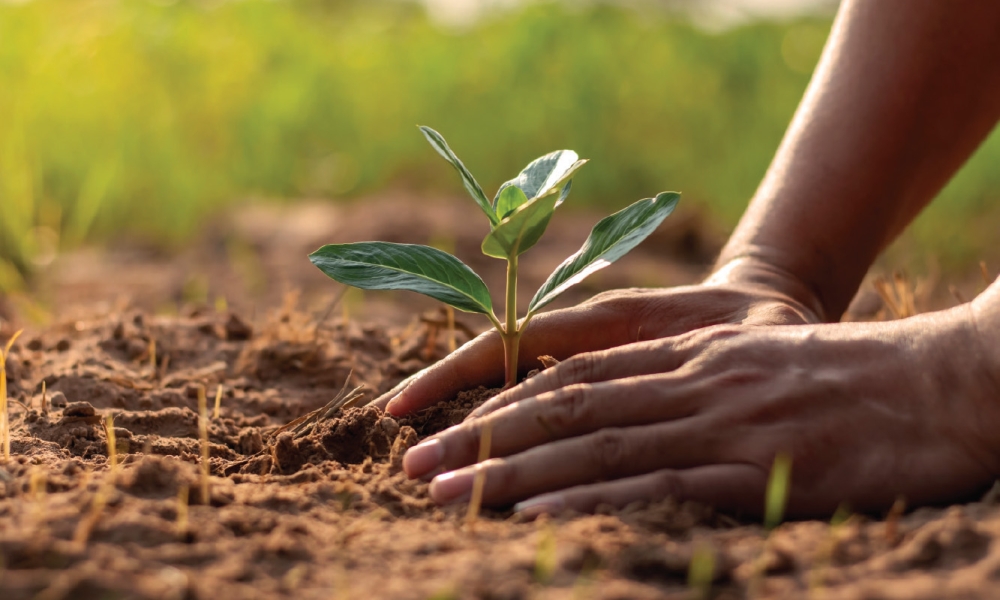
‘The Forgotten Talent’
I don’t know if you’ve heard the phrase that says, “God always forgives, humans sometimes, nature never.” That is to say, God’s mercy is infinite and forgives every heart that comes forward in repentance. For our part, we do not always forgive; there are situations that require us to ask for divine grace to heal the pain and free ourselves from resentment.
I don’t know if you’ve heard the phrase that says, “God always forgives, humans sometimes, nature never.” That is to say, God’s mercy is infinite and forgives every heart that comes forward in repentance. For our part, we do not always forgive; there are situations that require us to ask for divine grace to heal the pain and free ourselves from resentment.
Nature, on the other hand, does not always have the capacity to return to its former state when it’s damaged or destroyed. Unfortunately, what we do to the environment and to our bodily nature often have no turning back.
Let’s recall the parable of the talents in the Gospel of Matthew, where a man was about to depart to a distant land and called his servants together to entrust his belongings to them (25:14). In the same way, one of the belongings God gave to Adam — and in his name to all mankind — was stewardship of the environment: “Let them have dominion over the fish of the sea, the birds of the air, the tame animals, all the wild animals, and all the creatures that crawl on the earth” (Gn 1:26-31).
Our ecosystem is one of the talents that God entrusted to us, and we have forgotten to take care of it. No matter how we relate to the talents, God will call each of us to account and see if we made them grow and multiply, if we hid them or if we squandered and wasted them. The environmental imbalance we are facing shows that far from taking care of this talent, we have squandered it to the point of generating a crisis. This is not political. We are all responsible for what has been entrusted to us. When Our Lord comes, what are we to say to him regarding this talent that we have neglected? What is the outcome for the one who reaps where he has not sown and gathers where he has not scattered?
Each April we celebrate Earth Day, and the best way to commemorate this date is by changing or challenging certain silent vices that harm our world and creating habits that mitigate our environmental impact. Sometimes we may feel that we are alone in the battle or that our actions are just a drop of rain in the middle of the ocean. But as St. Teresa of Calcutta said, “the sea would be less if it lacked a drop.”
Here are some practical ideas you can do at home:
Stay away from single-use plastics: When shopping, try to look for foods and products that are not packaged in plastic but in another type of material, especially recycled or recyclable material. A good place for this is the farmers' markets, or the well-known produce stands. Nowadays there are many products packaged with biodegradable materials.
Give yourself a second hand: Consider looking for quality clothes at thrift stores. This practice is one of the most supportive of environmental care because it is a direct way of reusing already processed natural resources.
Be amazed by the water: When showering, turn off the water while using the shampoo and to lather. You’ll be amazed at how much water you save! Bonus points that those savings will be reflected in your monthly bill.
Reuse your thirst: Carry a metal or glass water bottle with you to refill so you can use it countless times and avoid buying single-use plastic bottles.
Share the road: If you can, use public transportation or rideshare. In this way, you will be avoiding the consumption of oil, one of the most exploited materials that is also one of the biggest pollutants.
Shop tomorrow: When you have the urge to buy something you didn’t have in mind before you left home or while browsing online, leave it on the rack or in the online cart for a day to think about whether you really need it. You’ll be able to come back if you do and shop more consciously. Your bank account will thank you.
These are just a few of the small things we can do to generate long-term positive impacts on our environment. Imagine for a moment that all of us were doing this every day. Can you visualize the impact? If we turn them into daily habits, we will be taking care of our shared talent — our common home.
“... men and women who believe in God the Creator, and who are thus convinced that there is a well-defined unity and order in the world, feel called to address the problem. Christians, in particular, realize that their responsibility within creation and their duty towards nature and the Creator are an essential part of their faith” (St. John Paul II, World Day of Peace, 1990).
Cristina Umaña Sullivan is a cultural sociologist who has been dedicated to evangelization for more than 10 years with a specialty in Theology of the Body and identity creation from a Christian perspective. Email her at fitnessemotional@gmail.com.
